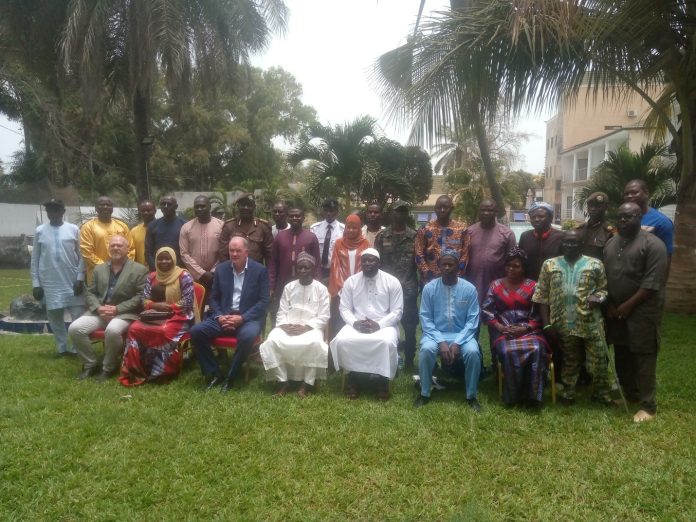By Ndey Sowe
The Geneva Centre for Security Sector Governance (DCAF), in partnership with The Gambia’s Office of the Ombudsman, has concluded a five-day training program focused on strengthening national oversight institutions through the development of a Guidance Document and Good Practice Toolkit.
The event, held at a hotel in Kotu and supported by the European Union, is part of the broader EU-funded project “Gambian Security Sector Reform Process for Improved Security, Migration, and Border Management.” It brought together key national stakeholders for intensive collaboration on transparency, accountability, and institutional coordination.
Mark Lynch, DCAF’s Interim Advisor for Border Management and Security Sector Reform in The Gambia, expressed gratitude to the EU and the Ombudsman’s office for their support. “It is really clear this week that the principles of accountability and transparency are at the core of your work and attitude,” he said, acknowledging the participants’ professionalism and commitment. He praised their embrace of national ownership and noted the significance of embedding reform values into daily operations.
Bakary Sanyang, Director General of the Office of the Ombudsman, stressed the importance of collaboration across oversight bodies. “The importance of bringing together such a diverse group of professionals who are all dedicated to enhancing accountability, transparency, and governance in various fields cannot be overemphasised,” he said.
“I have no doubt that your interactions and the invaluable discussions and insights you shared over the past few days regarding the collaboration between our oversight institutions will be useful tools to serve our people better,” he added. “When we develop an effective partnership model, our oversight institutions will be stronger and more efficient in our approach to good governance.”
Hon. Almamy Gibba, of the National Assembly Standing Committee on Defence and Security, delivered the vote of thanks on behalf of participants. “We are very pleased and as an oversight institution within the next couple of five days, we were able to cooperate on important issues that we think will enhance the security sector reform,” he said.
Gibba noted the training helped them establish frameworks and guiding principles for better cooperation. “The most interesting part of the training is that this is a working document that is developed by us as Gambians,” he said. “We have also shared ideas that we have seen gaps, difficulties in terms of information sharing and coordination to effectively reform the security sector and collaborate as partners.”
He urged fellow participants to apply the lessons learned, emphasising the importance of collaboration, communication, and coordination.


















